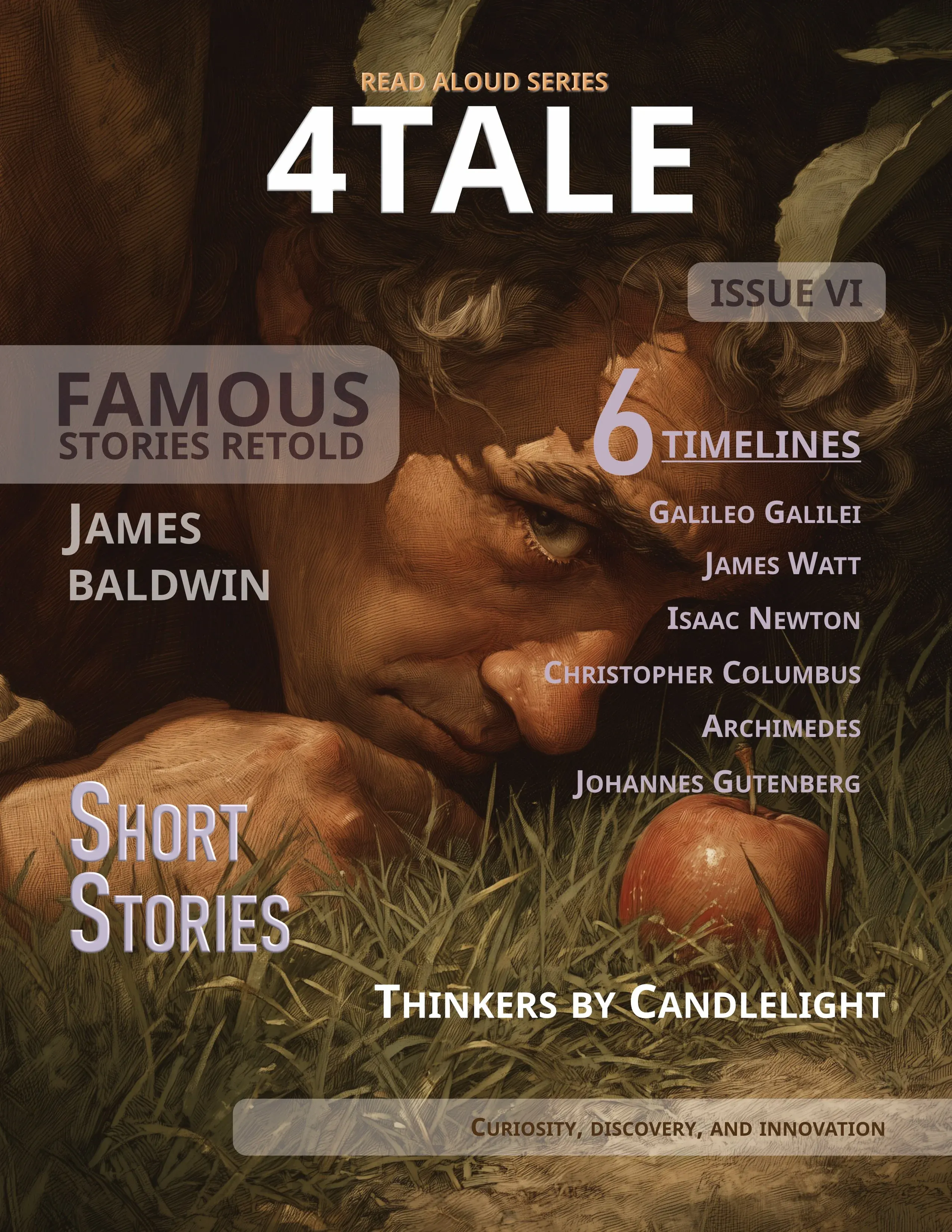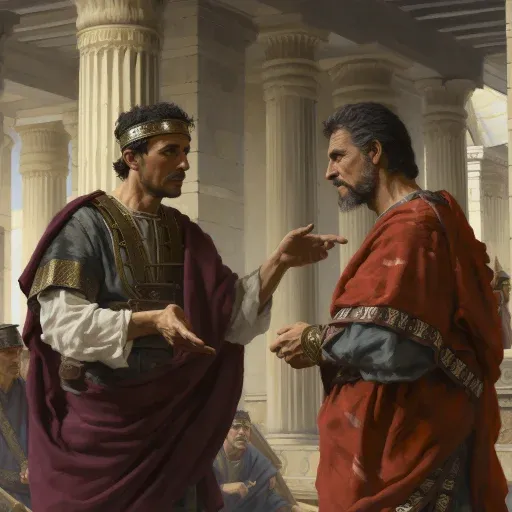BY JAMES BALDWIN
Sir Isaac Newton and the Apple
Famous Stories Retold: Story 7 of 30

Heading

Universal Gravitation: Newton proposed that every object attracts every other object with a force that depends on their masses and the distance between them.
Gravitation’s Role: He realized that this force of gravitation keeps the planets in their orbits around the sun.
A good book we like, we explorers. That is our best amusement, and our best time killer
- Roald Amundsen, Explorer
Newton's Apple: A Gravity Tale That Changed Science
Immerse yourself in the captivating tale of Sir Isaac Newton's apple-inspired revelation, a pivotal moment that forever changed our comprehension of the cosmos. The falling apple sparked a question, leading Newton down a path of relentless inquiry and observation. This exploration subsequently birthed the law of gravitation, a fundamental cornerstone in the realm of physics. As we delve into this intriguing episode, you will discover the profound implications of Newton's discovery and its far-reaching effect on our understanding of the universe. Prepare to be enlightened as we unravel the mysteries of gravity.
Uncovering the Enigma of Gravity
Gravity, a force so deeply woven into the fabric of our existence, often goes unnoticed in our daily lives. Yet, it is a concept that puzzled the great mind of Sir Isaac Newton, leading to groundbreaking discoveries. Newton pondered upon the unseen force that kept us grounded and the planets orbiting the sun. His profound curiosity and relentless pursuit for answers laid the foundation for our understanding of gravity.
The Fateful Day Under the Apple Tree
The story of Newton's discovery of gravity under an apple tree is one of the most famous anecdotes in the history of science. On a day in autumn, while lying on the grass under an apple tree, Newton observed an apple falling. Instead of dismissing the event as a natural occurrence, his inquisitive mind sought to understand why the apple fell straight down and not in any other direction. This seemingly simple observation was the spark that ignited Newton's quest to unravel the mystery of gravity.
Dive Deeper 'Timeless Wisdom' Podcast
Video with Captions and Visualizer
Newton's Queries: Why Do Objects Fall?
"Why do objects fall?" This question led Newton down a path of inquiry that would revolutionize our understanding of the physical world. He wasn't satisfied with the simplistic explanation that objects fall because they are heavy. Newton delved deeper, questioning why one object is heavier than another and why all objects seem to fall towards the Earth. His relentless questioning was the catalyst for a new scientific era, one that understood gravity as a universal force pulling objects towards each other.
The Birth of the Gravitational Theory
We all know how an apple falls from a tree, but for Sir Isaac Newton, this simple occurrence was a gateway to a revolutionary theory. While most would dismiss the apple's fall as a mere consequence of its ripeness, Newton saw a universal phenomenon at play. The apple that fell beside Newton triggered a series of questions in his brilliant mind that led to the birth of the gravitational theory.
Newton posited that every object in the universe attracts every other object, resulting in a force that we now call gravity. He reasoned that the force an object exerts depends on its mass and the distance between it and the other object. The Earth, being significantly larger and heavier than the apple, exerts a force that pulls the apple towards it.
This was a groundbreaking theory that changed our understanding of the natural world. The gravitational theory not only explained why things fall towards the Earth but also provided a plausible explanation for the motion of planets and stars in the universe.

The Implications of the Gravitational Force
The implications of Newton's gravitational theory are far-reaching. When Newton unveiled his theory, it revolutionized scientific thought and laid the groundwork for many future scientific discoveries and technological advancements.
Gravity is responsible for the very existence of the Earth and other planets. It is the force that binds everything in the universe, from the smallest particles to the largest galaxies. Without gravity, there would be no life as we know it.
Furthermore, gravity plays a critical role in our daily lives. It gives weight to physical objects and causes the ocean tides. The understanding of gravity has also enabled us to explore space, land on the moon, and send satellites into orbit.
Envisioning a World Without Gravity
Imagine a world without gravity. Without this anchor, everything as we know it would be drastically different. An apple would not fall to the ground; instead, it would float aimlessly. There would be no stable ground to stand on, for the Earth itself would disintegrate, its pieces flying off into space.
Without gravity, there would be no atmosphere, and hence, no life on Earth. Planets would not orbit the sun, stars would not form, and the universe as we perceive it would not exist.
While such a world seems disorienting and chaotic, it highlights the importance of gravity in organizing and sustaining the universe. The simple act of an apple falling to the ground is a testament to this fundamental force.
Thus, when we ponder upon Newton's apple, we are reminded of the invisible forces that hold our world together. And in Newton's words, we realize that we have merely been playing on the seashore, while the great ocean of truth about gravity and the universe still lies before us, unknown and unexplored.
Conclusion
The apple's descent sparked Newton's curiosity, leading to the birth of the gravitational theory. This monumental discovery forever reshaped our understanding of the universe. The gravitational force, a mysterious yet integral component of our reality, keeps our universe orderly. Without it, chaos would ensue. Sir Isaac Newton's inquisitive mind serves as an inspiration, prompting us to continually question our surroundings and seek answers. His legacy is a testament to the power of curiosity and the endless pursuit of knowledge. His apple-inspired revelation remains a pivotal moment in the annals of scientific history.





